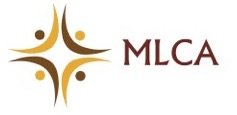Did you know that it takes 20 pairs of muscles and five cranial nerves to co-ordinate for a swallow?* This complex situation usually works, though sometimes we have to look deeper into why it doesn’t. There are several factors that make feeding effective. A comfortable latch is but one.Why an IBCLC? An International Board Certified Lactation Consultant is a Lactation Specialist. We observe and review the situation of the mother and the baby together. In our work, we look more deeply into the mother’s well-being, the baby’s health and how the natural process of milk making is progressing. Every family is a new situation and we have a lot of information from which to draw.Of the 15 certifications for lactation support, the IBCLC credential is the most rigorous. It requires 300-1000 hours of actual mother-baby clinical experience. This in addition to 14 health science courses and 90 hours of lactation specific education. Then one has to pass an international exam… every ten years. This thorough background is important to understand the many facets to a situation.When should you see an IBCLC? It’s always good to ask questions, the sooner the better. Prenatal consults or classes will help you understand how to get a good start to breastfeeding.You should definitely call if:• Feeding is painful or uncomfortable• Your baby is not soiling enough diapers• Your baby has lost 10% since birth or is not gaining weight by Day 5.How to find an IBCLC. It’s always good to have an IBCLC contact handy.Zipmilk is a wonderful resource that organizes breastfeeding support (of all sorts) by zip code. This includes free breastfeeding groups, certified lactation counselors (a one week training) as well as IBCLCs.Every IBCLC has the same standard of education and background. Through the International Lactation Consultant Association, you can find an IBCLC all around the world. IBCLCs work in hospitals, clinics, and pediatrician’s offices. Many have private practices and make home visits. There are IBCLCs at the local Baby Café. Some IBCLCs research lactation and breastfeeding policies, advocate in the legislature and in hospital administration.IBCLCs are everywhere, working to make support more accessible and attentive to the needs of all new families.*Breastfeeding and Human Lactation. Fifth Edition Karen Wambach and Jan RiordanJones and Bartlett Learning c. 2016

